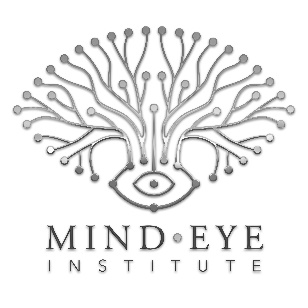
‘Brain’ Eyeglasses Renew Her Hope – And Quality of Life
Brain-Injured Patient Contacted Mind-Eye Institute on Advice of Neurologist
Molly Kelsey had lost confidence in the health care system. The various professionals addressing the aftereffects of her traumatic brain injury – trouble focusing, general fogginess, light sensitivity, problems sleeping – “seemed to be just shooting in the dark,” she says.
But then she took the advice of a Chicago neurologist and scheduled an appointment with Deborah Zelinsky, OD of the Mind-Eye Institute (https://mindeye.com) in Northbrook, Ill.
“I had the impression Dr. Zelinsky knew what she was doing. She saw something others had not, and she was going to help me,” states Molly.
And, “help her,” Dr. Zelinsky has done.
Molly is on her fourth or fifth pair of therapeutic “brain” glasses and says her “get-well process” is now somewhere in the 90-plus percentage range.
“Cognitively, I am in pretty good shape,” she says. “I am sleeping again and doing physical and cognitive exercises every day.” Those physical exercises include workouts at the gym and even boxing, which she practiced in both high school and at the Naval Academy in Annapolis, Maryland, before a car crash put her life on hold.
Molly even plans to return to school – a master’s degree program at the St. John’s College campus in Santa Fe, New Mexico – and, perhaps, participate again in lifting competitions – something she also did previously.
The Mind-Eye Institute, which Dr. Zelinsky founded and where she serves as director of research, has revolutionized scientific understanding of how the retina serves as a two-way portal, transferring signals from outside to inside and vice-versa, while the mind and body continually adapt to sensory changes.
“The way light disperses across the retina can impact brain function,” says Dr. Zelinsky, an optometrist noted worldwide for her work in neuro-optometric rehabilitation “Changes in luminance on the eye affect how the brain interprets and reacts to information about the environment and can impact a person’s spatial awareness, body movement and selective attention to sound.”
The Z-Bell Test® is a simple, but revolutionary, method of checking a patient’s overall spatial awareness and the integration of visual processing with listening. The test has changed the lives of both pediatric and adult patients by allowing the Mind-Eye team to prescribe eyeglasses that normalize the balance between central and peripheral receptors in the retina, while improving the connection between eyes and ears.
“With the Z-Bell Test®, we can determine whether the environment is in sync or just plain confusing for a patient,” Dr. Zelinsky explains. “Using the proper mix of filters, lenses and/or prisms, we can readjust a patient’s visual balance and eye-ear integration.”
Molly’s odyssey began in March 2014 while returning with a friend to the Naval Academy from her home in Indiana at the conclusion of spring break.
“We were driving in a snowstorm and were rear-ended by four semis,” she says. In addition to breaking several bones in her lower back, the crash left her with a brain injury, of which she was not immediately aware until she began experiencing symptoms at the Naval Academy.
“I remember picking up a pitcher of water and pouring the water on the table. I missed the glass completely,” she says.
Her symptoms, which included “walking into everything and dropping and breaking things,” took her to local specialists in her Indiana hometown where “they were mainly interested in medications – ‘downers’ to sleep and ‘uppers’ during the day. I felt awful.”
Forty hours of vision therapy with a provider in Michigan also failed to help. So, she traveled to Chicago and contacted a neurologist at one of the city’s university-based medical centers.
He suggested Molly expand her leisure time – engage in more of the activities that she loves doing.
“I started playing guitar a couple hours a day and spent more time with friends,” Molly says. “The neurologist said the brain is like a lawnmower. You keep cranking until you find something that makes it start.”
But, after a year of care there, Molly’s “lawnmower” remained, at best, in low gear, with symptoms persisting. The neurologist finally advised her to contact Dr. Zelinsky.
During her initial appointment at the Mind-Eye Institute, Molly underwent Dr. Zelinsky’s patented Z-Bell Test®, in which a patient reaches out, with eyes closed, and tries touching a ringing bell. If the patient cannot do so, Dr. Zelinsky places different lenses and colored filters across the patient’s closed eyelids until the right combination is found, allowing the patient to find the bell immediately.
“Whether or not I understood all the science behind [the testing], I could tell what [Dr. Zelinsky] was doing was real,” Molly says. With the correct lenses and filters, “I could close my eyes and touch the bell.”
Following testing, Molly recalls Dr. Zelinsky telling her “my brain was not filtering background sounds and sights. Essentially, I was trying to focus on everything all the time. That’s why I was tired, my eyes were tired – sort of an information overload.”
When she donned her first pair of therapeutic glasses prescribed by the Mind-Eye Institute, “everything looked better. I could see things and focus on them.” The “brain” glasses also helped reduce the light sensitivity that had forced her to keep lights off in the house and avoid going outside because of the brightness.
As for “breaking and droppings things, the new pair of glasses got rid of that,” Molly adds.
“In hindsight, I don’t know where I would be without my Mind-Eye prescriptions and the Mind-Eye team,” Molly says. “I would not be returning to school. I would not be working. I would not be going anywhere. The glasses have made a huge impact on my quality of life.”
Note: Molly Kelsey has been a resident of South Bend, Ind.
Contacts